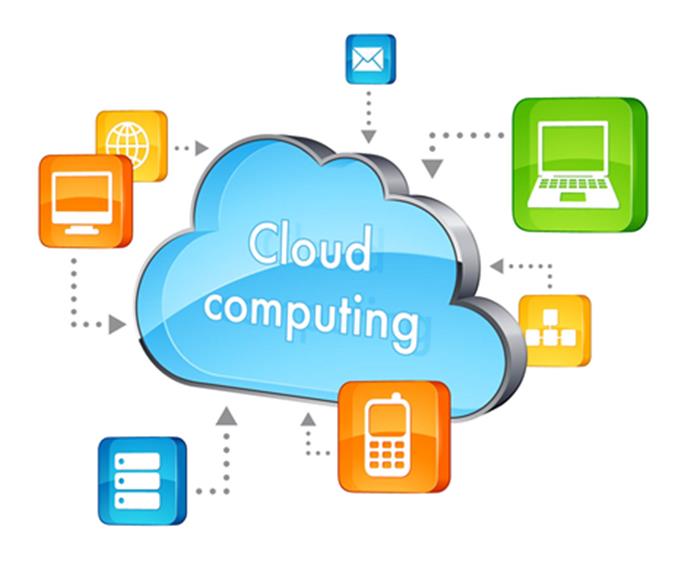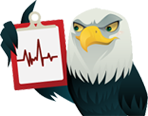Big Data, Cloud, and Mobile: What Every Small Business Needs to Know
By Alex Carter on October 25, 2024

In today’s fast-paced digital landscape, small businesses can greatly benefit from leveraging powerful technologies like Big Data, cloud computing, and mobile. Known for their transformative capabilities, these technologies have grown beyond their individual functions to form a cohesive “convergence” that unlocks even greater potential for innovation and market advantage. Convergence is particularly valuable for small businesses, as it provides access to sophisticated tools and insights previously accessible only to larger enterprises. This guide explores how small businesses can harness Big Data, cloud, and mobile, both as individual solutions and as convergent technologies, to drive growth and competitive advantage.
Big Data: A Resource for Businesses of All Sizes
Big Data has reshaped industries by providing unprecedented insights into customer behavior, product performance, and market trends. While it’s easy to think of Big Data as something that only concerns big businesses, small businesses, too, can benefit by implementing data-driven strategies. Contrary to the myth that only large enterprises face Big Data challenges, any organization will eventually encounter “big data” issues as it collects more information, whether in the form of customer feedback, website metrics, or transactional data.
Today, a wide range of tools and platforms can help small businesses extract value from their data without needing a team of data scientists. For example, businesses can use analytics platforms to monitor customer trends, tailor marketing efforts, and improve customer experiences based on real-time data. By tapping into these resources, small businesses can make informed decisions, forecast demand, and enhance customer loyalty in ways that were previously out of reach.
Cloud Computing: Bringing Enterprise-Grade Technology to SMBs
Cloud computing has revolutionized the way small businesses approach IT, enabling them to use high-performance services without massive upfront costs. Cloud solutions make it possible to access essential services such as storage, computing power, and software applications via the internet, which eliminates the need for extensive hardware or infrastructure investments.
For small businesses, cloud adoption is about staying competitive. Recent studies reveal that cloud services for SMBs are growing, with the market projected to reach $32 billion by 2016. By moving operations to the cloud, small businesses can improve efficiency, cut costs, and access a range of enterprise-grade tools—such as project management, customer relationship management (CRM), and real-time financial monitoring—that were once exclusive to large corporations. Additionally, the ease and speed of accessing cloud solutions make them indispensable in today’s business environment, where agility is crucial.
Mobile: The Essential Channel for Engagement and Innovation

Mobile technology has become indispensable for small businesses, especially given the increasing consumer preference for mobile interactions. Many businesses are adopting a “mobile-first” approach to ensure they meet their customers where they are. From responsive websites to dedicated mobile apps, mobile provides a direct channel to customers and enables businesses to engage more dynamically than ever before.
Furthermore, the Internet of Things (IoT) and wearable technology, such as smartwatches, add new dimensions to mobile capabilities, offering small businesses even more ways to interact with customers. Mobile is no longer limited to smartphones and tablets; wearables and other connected devices allow businesses to collect and utilize data in real time. For instance, businesses can use IoT for inventory tracking, customer feedback collection, and even personalized marketing, helping them stay one step ahead in a competitive market.
The Convergence of Big Data and Cloud: Enabling Analytics-as-a-Service
When Big Data and cloud computing intersect, small businesses gain access to robust data processing and analytics capabilities at a fraction of traditional costs. This fusion has led to the rise of Analytics-as-a-Service (AaaS), where companies can analyze and visualize complex data sets in real time using cloud platforms. Major providers like Amazon Web Services, Google, and Microsoft offer scalable analytics services that allow businesses to manage Big Data without the burden of physical infrastructure.
For small businesses, AaaS means having the ability to gain customer insights and perform predictive analysis efficiently and cost-effectively. With the assistance of cloud-enabled analytics, SMBs can quickly access, analyze, and act on customer data to inform product development, marketing strategies, and overall business planning.
The Integration of Mobile and Cloud: Toward Ubiquitous Computing

The relationship between mobile and cloud computing has led to the concept of “ubiquitous computing,” where technology is seamlessly integrated into all aspects of daily life. Ubiquitous computing, often referred to as “everything-as-a-service” or XaaS, encompasses everything from cloud-based storage to real-time project management solutions accessible from any device.
This integration is particularly beneficial for small businesses aiming to provide seamless and instant customer experiences. With mobile and cloud combined, small businesses can leverage platforms that enable real-time service delivery, customer engagement, and streamlined operations. From mobile-optimized websites to cloud-hosted customer support tools, this synergy allows small businesses to operate efficiently, regardless of their location or infrastructure limitations.
Big Data and the Internet of Things: Unlocking New Opportunities
As IoT devices proliferate, the volume of data being generated is unprecedented, making the convergence of Big Data and IoT a powerful tool for small businesses. By 2020, it is estimated that over 30 billion devices will be connected to the internet, offering endless data points on customer habits, product performance, and environmental factors. The combination of Big Data analytics with IoT allows businesses to create more personalized and responsive customer experiences.
IoT applications for small businesses are extensive and include everything from health tracking in wearable tech to smart inventory systems that monitor stock levels in real time. By investing in IoT-enabled solutions, small businesses can collect valuable data on customer interactions and product use, leading to deeper insights and better decision-making. The anticipated release of new devices, like the Apple Watch, is set to further expand these opportunities, providing small businesses with even more ways to engage with customers and drive innovation.
Conclusion
Big Data, cloud, and mobile technologies have transformed the modern business landscape. For small businesses, the convergence of these technologies offers a level of accessibility, flexibility, and scalability that can elevate them to new heights. By understanding and adopting Big Data, cloud, and mobile in both isolated and integrated applications, small businesses can enhance customer engagement, streamline operations, and ultimately position themselves for sustained success in an increasingly digital world.
Posted in blog, E-commerce
Alex Carter
Alex Carter is a cybersecurity enthusiast and tech writer with a passion for online privacy, website performance, and digital security. With years of experience in web monitoring and threat prevention, Alex simplifies complex topics to help businesses and developers safeguard their online presence. When not exploring the latest in cybersecurity, Alex enjoys testing new tech tools and sharing insights on best practices for a secure web.
